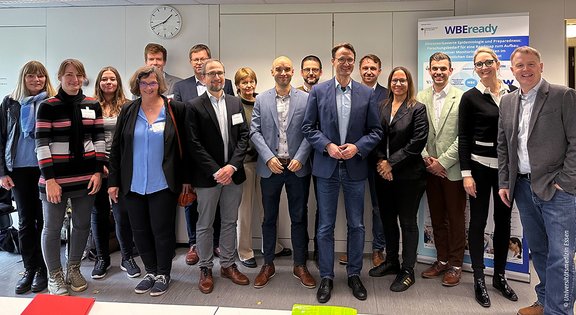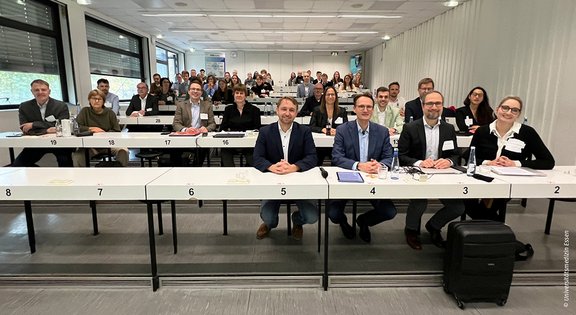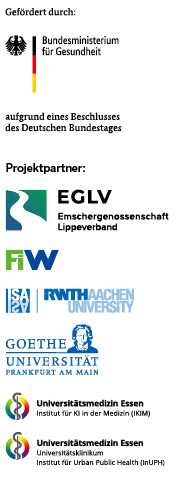Detecting viruses, diseases and thus also pandemics at an early stage - already during the Corona crisis, wastewater provided early indications of infection dynamics. The new research project WBEready now aims to develop a roadmap for implementing wastewater-based epidemiology (WBE) for various diseases in order to be able to react more quickly to any pandemics that may occur in future. A research consortium from urban water management, data science, medical research and public health is involved under the leadership of the water management associations Emschergenossenschaft and Lippeverband (EGLV), which together are Germany's largest operators of wastewater treatment plants. WBEready is funded by the German Federal Ministry of Health (BMG).
"Wastewater-based epidemiology enables regional surveillance, thereby complementing individual testing to detect disease outbreaks - especially at times when not many people are tested. It can help public health services be much more profound in evaluating the effectiveness of infectious disease control measures," said Dr. Frank Obenaus, EGLV's Chief Technical Officer.
Already during the Corona pandemic, EGLV as regional water management associations met social responsibility and, together with their partners in the preceding research project COVIDready, set up a monitoring system in North Rhine-Westphalia for SARS-CoV-2. As Germany's largest wastewater treatment company, EGLV is now also making its infrastructure in the Emscher-Lippe region available as a living lab in the WBEready research project. Together with the Research Institute for Water Management and Climate Future at RWTH Aachen University (FiW), EGLV serves as a cross-municipal interface between the health care sector and environmental technology organizations.
Under the scientific leadership of the Institute of Medical Virology at the University Hospital Frankfurt, new analytical, technical, epidemiological and institutional research questions are being clarified on the basis of the Emscher-Lippe region. In particular, the implementation of a cost-efficient PCR analysis based on stepwise diagnostics and parallel testing is planned. The focus will be not only on circulating pathogens occur especially in the fall and winter months, including SARS-CoV-2, RSV, and influenza, but also on emerging pathogens that have received less attention so far and are invading due to climate change, as well as antibiotic-resistant bacteria. In addition to PCR-based investigations, new methods of nucleic acid sequencing in environmental samples are being tested under the direction of the University Medicine Essen in order to detect new or modified pathogens at an early stage in addition to the retrieval of known circulating pathogens (viruses and bacteria). This is a comprehensive approach tackling viruses and antibiotic resistances.
The processes in wastewater and in the sewer network are being studied by the Institute of Environmental Engineering at RWTH Aachen University. To ensure that the data can be evaluated in a targeted and user-oriented manner, the Institute for Artificial Intelligence in Medicine and the Institute for Urban Public Health at University Medicine Essen will coordinate the project with the public health service, set up an internal project data infrastructure, and conduct analyses of temporal and spatial differences in the pathogen load according to demographic and socioeconomic aspects.
The interdisciplinary consortium is to develop and test a roadmap for a practice-oriented system in the Emscher-Lippe region, which will allow for rapid wastewater monitoring adapted to the specific needs of public health authorities.








